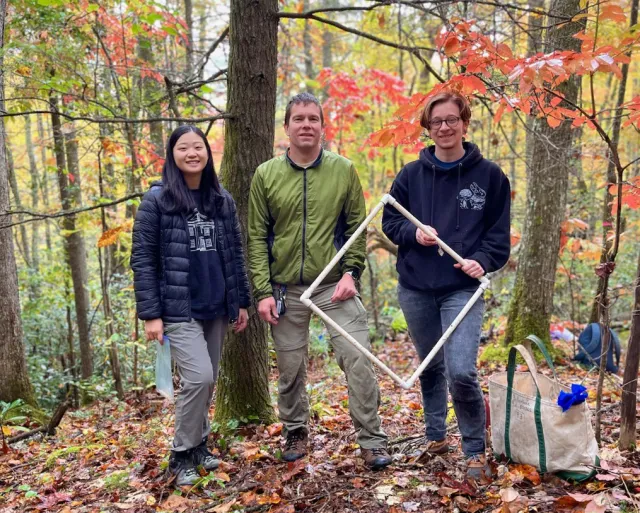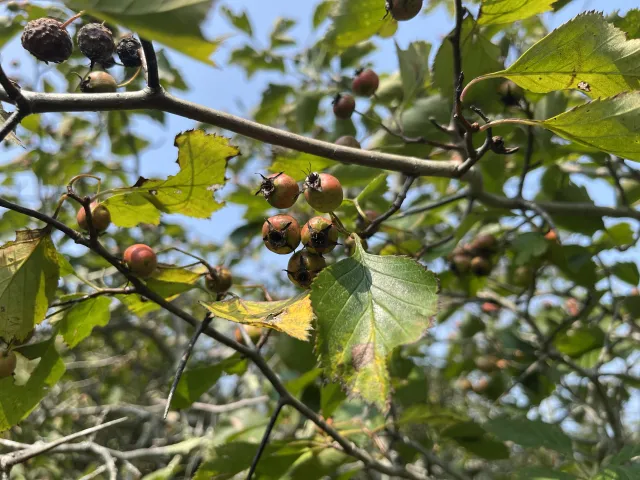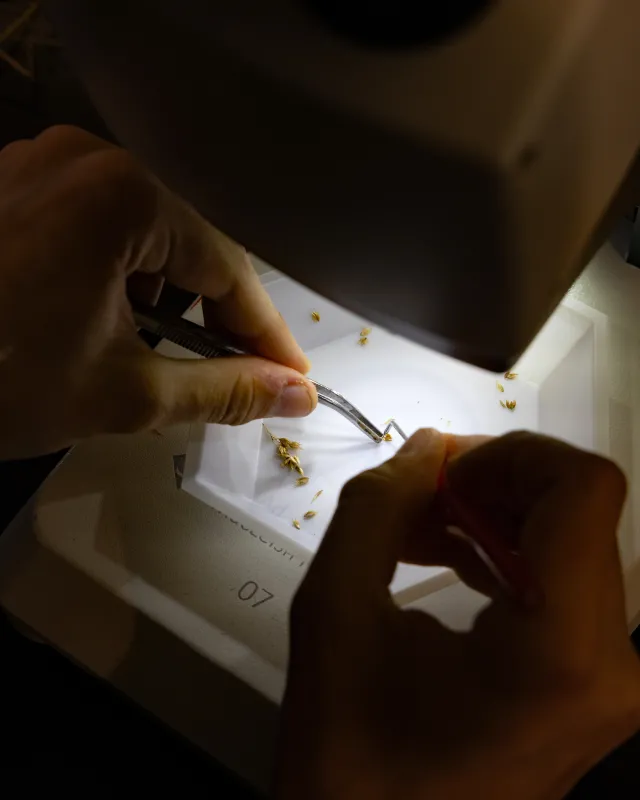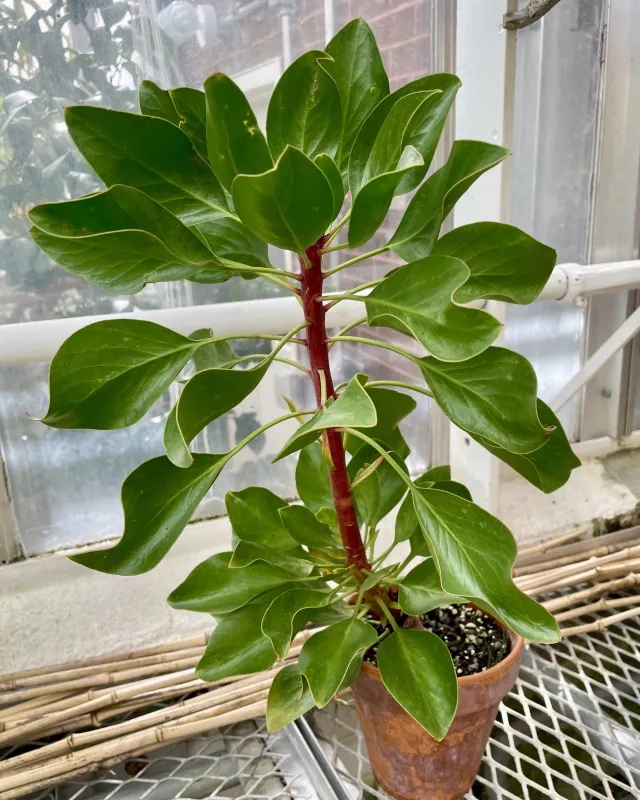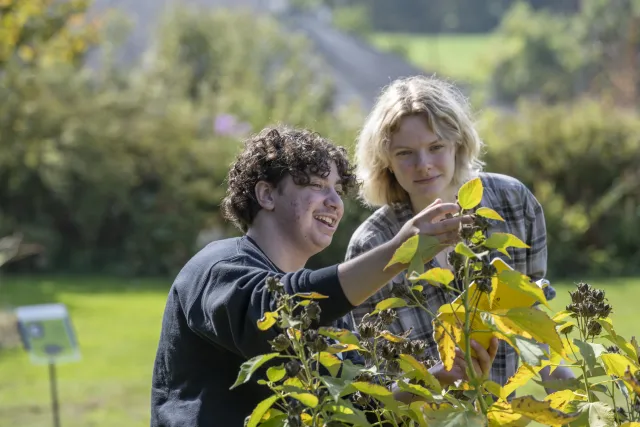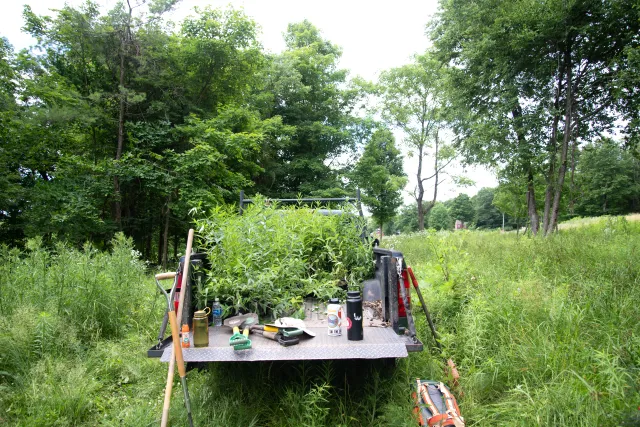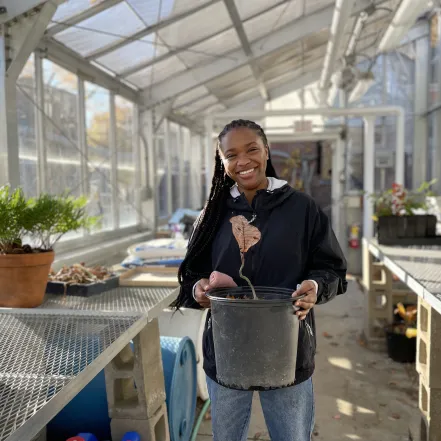Our 2024 Impact: Conservation, Collaboration, and Student Leadership
Bringing Smith Voices to the Work of 21st Century Botanic Gardens

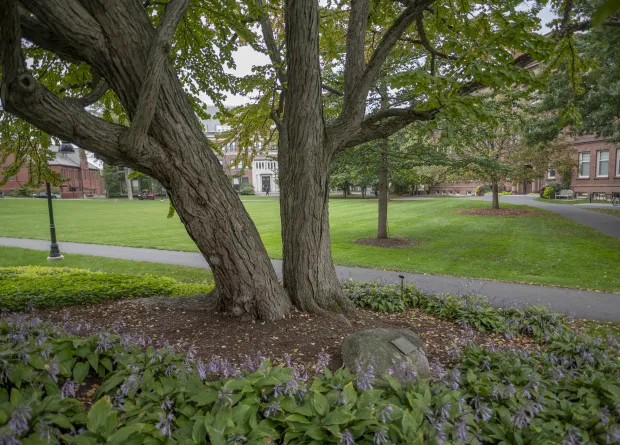
Four Years In: Success of the Conservation Internship Leads to Exciting Milestones
In August 2023, the Botanic Garden of Smith College celebrated a remarkable milestone. We proudly achieved accreditations from two prestigious organizations, highlighting our commitment to bringing Smithies into the world of botanic garden conservation, collaboration, and research. Our arboretum advanced from Level III to Level IV status with ArbNet, joining an elite group of just 45 institutions worldwide at their highest accreditation level. ArbNet classified arboreta around the globe according to resources, outreach, and impact. What makes us proud is that achievement results from involving Smith students in crafting our priorities, building important partnerships, and doing the work that got us there. Additionally, we earned our first accreditation from Botanic Garden Conservation International. These accomplishments are a testament to the immersive learning environment we foster, where students play an integral role in shaping the future of botanical science, conservation, and social justice.
Transformative Student Leadership Experiences
What does this new work look like? Experiential learning that connects classroom learning to real world problems!
“Getting to contribute to the Conservation Action Plan was really exciting because it connected all of our work in the field to actual organizational change in the world. As fun as it was to hike up and down the mountains amidst the magnolias, it really brought the whole project full circle when we sat down to share all of this knowledge in a document. I felt like I was making a difference beyond Smith for the future of these trees on a national level.”
This year our team conducted 12 rare plant surveys and collected seeds from 3 rare species in Massachusetts.
“Conserving endemic plants, both in the Southern Appalachian Mountains and the New England coast, involves building relationships with their landscape and the people who live on it in ways I never understood until this internship. The environment at the botanic garden made me feel at home and trusted as a student, scientist, and colleague all at once–I can tell a new part of myself has blossomed this year. “
Student Leadership Opportunities by the Numbers
28
student workers, interns, researchers and science communicators!
6
Botanic Garden Student Educators (BoGSES) organized 78 potting up appointments and 28 workshops
Building Collections with Purpose
Cultivating Connections
“Working at the botanic garden has been one of the greatest joys of my Smith career! It has been so rewarding to see the impact of our work through the steady uptick in plant potting-up appointments over the past few years, the fully booked workshop slots, and the excitement around campus whenever we put on an event. People want to connect with each other and the gardens, and it is so fun to facilitate events and spaces where that is actively encouraged!"
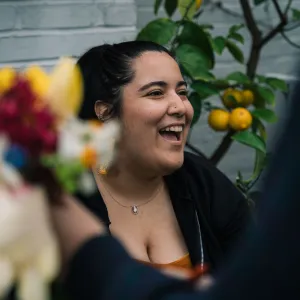
Serving the Sciences, Arts, and Humanities at Smith
Through tours, lectures, and curriculum support the botanic garden staff directly supported
35
courses taught by
26
instructors in
14
departments
682
Smith students reached through classes
1,437
students were reached through educational programming
Campus as Classroom
“It was very rewarding to establish these gardens in collaboration with the students because it was an opportunity to discuss the importance of herbivorous insects, how they incorporate new host plants into their diet and respond to climate change. Planting the gardens also provided an opportunity to talk about conservation and habitat restoration. Combining research and habitat restoration is one of the most rewarding aspects of this project for me. I was happy to see that students also appreciated being part of a project that has this dual contribution.”

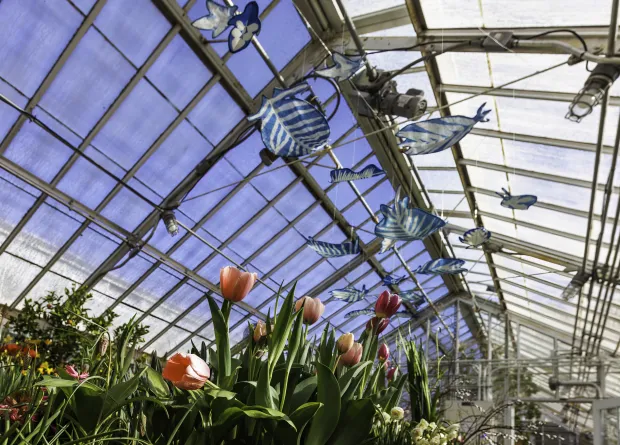
Bringing Students Into the Bulb Show
Beginning with the 2023 Bulb Show, students have been invited to take on the artistic concept that has historically been incorporated into the annual show. Enlisting Smith students, who are so deeply engaged in this kind of creative, generative thinking, was in line with the botanic garden’s mission to “facilitate collaboration” and encourage and “[train] students to be informed and impactful change agents.”
The work students have designed and built for the past two years has enriched the experience for everyone involved and elevated the show overall, and the relationships that have grown out of this collaboration have been significant. The collaboration has proved to be empowering for these students, offering them agency over the direction of this beloved tradition, which in turn has enabled them to see themselves reflected in the community and as valued members of this institution and its future.
“I’ve had the chance to engage with knowledgeable individuals whose work was initially puzzling but has since become clearer, while I’ve gained practical skills in science communication, plant genetic sequencing, and seed collection mapping. These enriching experiences, driven by passionate individuals who truly care, have deepened my belief that botanic gardens serve as dynamic living laboratories rather than mere displays of plants.”
Enriching our Educational Community
57
public school visits brought
937
students to the botanic garden
371
Friends of the Botanic Garden
Sharing our Strengths with Partners Around North America
From sharing plants to sharing knowledge, the Botanic Garden of Smith College was able to directly benefit over a hundred institutions in our broader botanical community through lectures, webinars, consultations, plant sharing and more!

